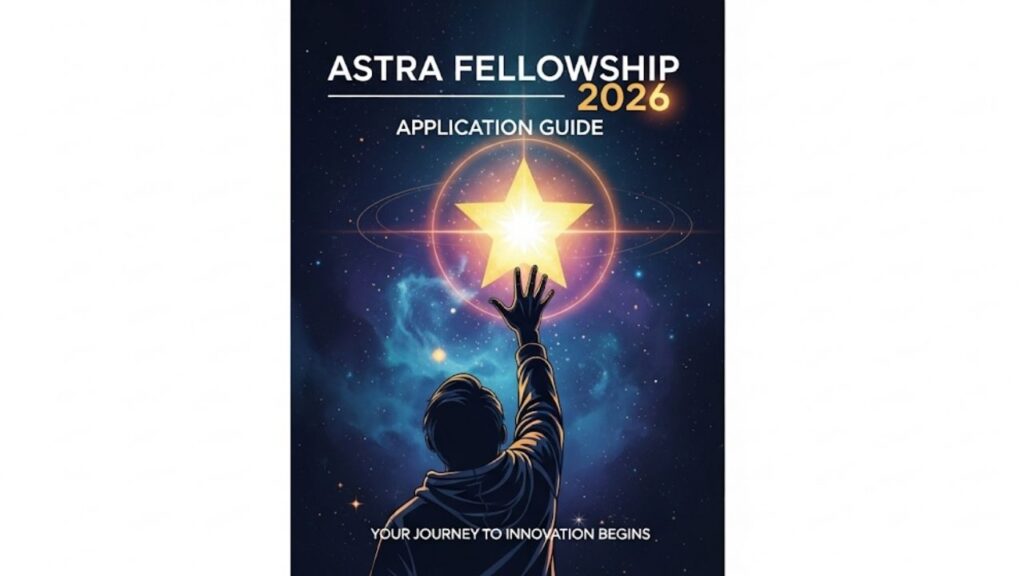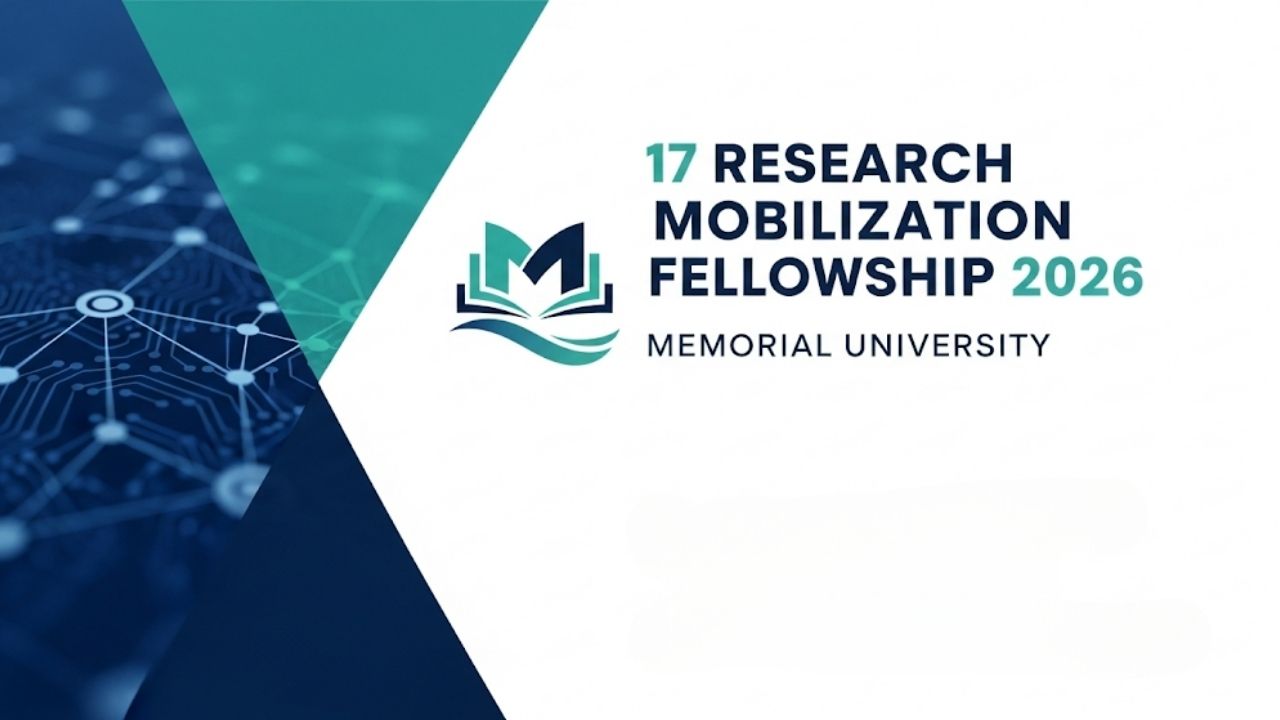Landing a prestigious fellowship can feel like trying to find a needle in a cosmic haystack. But what if that needle isn’t just a prize, but a launchpad for your career? The Constellation Astra Fellowship 2026 is that launchpad. It’s a unique, fully-funded program designed to propel emerging leaders and researchers into high-impact roles, particularly within the critical field of AI safety. This guide will walk you through the entire application journey, providing a clear, step-by-step roadmap to help you stand out and secure your spot among the next generation of innovators.

What is the Constellation Astra Fellowship?
The Astra Fellowship is a 3-6 month, in-person program at the Constellation Research Center in Berkeley, California. It is a highly selective opportunity for individuals who want to dedicate their work to safely navigating the development of transformative AI. The fellowship is more than just a research stint; it’s an immersive experience designed to accelerate your career and help you make a tangible impact. In my experience advising students, one common hurdle is bridging the gap between academic knowledge and real-world application. The Astra Fellowship excels at this, providing a structured environment where you can work on frontier AI safety projects with guidance from expert mentors and dedicated career support.
Who Should Apply for the Astra Fellowship 2026?
The Constellation Astra Fellowship is not just for seasoned AI researchers. The program explicitly states that prior AI safety experience is not required, as many successful fellows have entered from adjacent fields and made significant contributions. Instead, the focus is on passion, potential, and a desire to contribute to the field.
The ideal applicant is someone who is already working full-time on one of Constellation’s focus areas or something closely related. These areas span a wide range of disciplines, including:
- Empirical AI Safety Research: Experimenting with and analyzing AI systems to understand their behavior and risks.
- Technical AI Policy & Governance Research: Developing policies and frameworks to guide the safe development and deployment of AI.
- AI Strategy & Conceptual Research: Thinking through the long-term implications and strategic challenges of advanced AI.
- AI Security Engineering and Research: Building secure systems and identifying vulnerabilities in AI models.
- Field-building: Creating the infrastructure and community necessary to support and grow the AI safety field.

A Look at the Application Process and Key Dates
The application for the Constellation Astra Fellowship 2026 is now open, and it’s a multi-step process that requires careful preparation. The application deadline for the next cohort is September 26, 2025, with the fellowship starting on January 2, 2026. It’s highly encouraged to apply early, as applications are reviewed on a rolling basis.
The application form, available on the official Constellation website, will ask for a variety of information, including your background, experience, and a series of short essays. You’ll need to articulate your motivations for joining the program and how your skills and interests align with their mission.

How to Craft a Standout Application
This is where the real work begins. Your application is your chance to tell a compelling story about why you belong in this fellowship. Here are some actionable tips I’ve seen many successful applicants focus on:
1. Show, Don’t Just Tell, Your Commitment
The Constellation team wants to see genuine dedication to the field of AI safety. Don’t just say you’re interested; provide evidence. This can be a personal project you’ve worked on, an open-source contribution, a blog post you’ve written, or even a detailed reading list of academic papers you’ve engaged with. Demonstrating initiative and a proactive learning mindset can be more impactful than a long list of formal qualifications.
2. Master the Motivation Letter
Your motivation letter is your narrative. It’s the place to connect the dots between your past experiences and your future aspirations with the fellowship. Structure your letter to answer these core questions:
- Why the Astra Fellowship, specifically?
- Why AI safety, and why now?
- What unique skills or perspectives do you bring to the table?
- How will the fellowship enable you to achieve your long-term goals?
Be specific. Instead of saying “I want to solve AI alignment,” talk about a particular problem within AI alignment that you find compelling and how you plan to approach it.
3. Showcase Your Research Potential
Whether you come from a technical or a policy background, you’ll be expected to engage in a research-oriented project. Your application should hint at your ability to think critically and conduct independent work. If you have a portfolio of past work, include it. If not, consider outlining a potential research idea related to one of the fellowship’s focus areas. This shows you’ve thought deeply about the kind of work you would do as a fellow.
4. Prepare for the Interview
If your application is successful, you will likely be invited for an interview. This is your opportunity to expand on your written application and showcase your communication skills. Be prepared to discuss your project ideas, your thoughts on the most pressing issues in AI safety, and how you handle complex problems. The interview is a two-way street; it’s also your chance to ask thoughtful questions about the program’s mentorship, resources, and community.
The Benefits of Being an Astra Fellow
The financial and logistical support provided to fellows is a testament to the program’s commitment to your success. As a fully funded program, the Constellation Astra Fellowship provides:
- Competitive Stipend: A monetary stipend for the full duration of the program, which allows you to focus entirely on your work.
- Housing and Travel: Housing and travel expenses are covered, eliminating a major logistical and financial barrier.
- Research Resources: Fellows receive a substantial research budget of around $15,000 per month for compute resources, a significant advantage for those working on computationally intensive projects.
- Visa Support: The fellowship provides visa support for international applicants, making it accessible to a global talent pool.
- Community and Networking: You gain access to a network of approximately 150 participants and have regular interaction with leading AI safety researchers and thought leaders.
Final Thoughts and Encouragement
The application process for a program like the Constellation Astra Fellowship 2026 can seem daunting, but it is an opportunity to reflect on your career goals and articulate your passion. Don’t be discouraged if you feel you don’t check every box. The organization’s emphasis on potential and intellectual curiosity is a clear invitation to apply. Take the time to understand the program’s mission, craft a clear and compelling application, and be prepared to show why you are the right person to help safely shape our technological future. The journey is as important as the destination, and this application is the first step on a truly impactful path.
Your Guide to the Chevening LSE Fellowship 2026: A Launchpad for Global Leaders
FAQs
Q1: How competitive is the Constellation Astra Fellowship?
A: The fellowship is highly selective, attracting a global pool of applicants. However, the program’s focus on potential and a diverse range of experiences means that a well-crafted application can make you a strong candidate, even without a traditional AI safety background.
Q2: Is the fellowship in-person or remote?
A: The Astra Fellowship is an in-person program at the Constellation Research Center in Berkeley, CA. This structure is designed to foster collaboration and community among fellows and the wider research network.
Q3: Is there an age limit for applicants?
A: While the fellowship is often aimed at young leaders and recent graduates, there are no strict age limits. The key eligibility criteria are your work and passion for one of the program’s focus areas.










